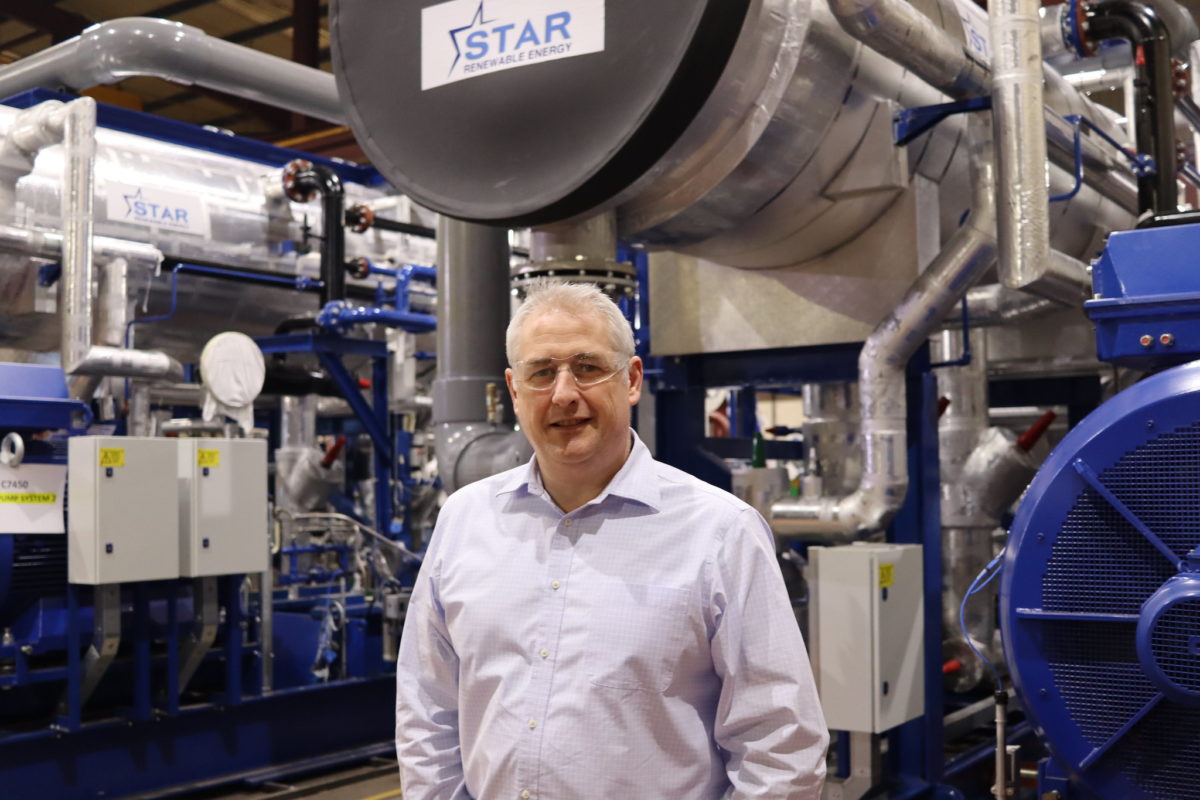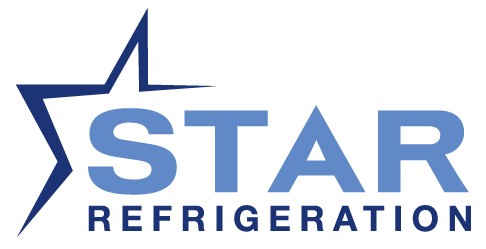
Decarbonising Heating and Cooling Integral to Reaching Net Zero Targets, says Glasgow Industrial Engineering Leader
As Glasgow prepares to host COP26, Dave Pearson of Cold Chain Federation member Star Refrigeration is determined to show world leaders how carbon neutral heating and cooling technology can be successful
All eyes are on Scotland next week as Glasgow hosts arguably the most important climate change summit to date – the 26th UN Climate Change Conference of the Parties. Running from 31st October – 12th November 2021, the event is part of the urgent action required to keep the planet’s average global temperature from rising above to 1.5℃ and prevent disastrous irreversible damage.
Whilst transport and diet will undoubtedly dominate the headlines and priority themes for COP26, in reality the more ubiquitous cooling and heating are the single largest human activities affecting climate. Essential to our everyday life, the cold chain (food production and storage), pharmaceuticals, data centres, comfort cooling and heating are both omnipresent and destructive. Our reliance on cooling was recently highlighted with the transportation of the Covid vaccine.
These sectors are also responsible for the increase in greenhouse gases in the atmosphere over the last decades. In fact cooling and heating are estimated to account for around half of the end-use energy worldwide and 40% of its energy-related global carbon dioxide (CO2) emission. Add in the use in many systems of synthetic working fluids (cousins of mainly banned CFCs and HFCs), and the climate impact is potentially devastating.
More measures to avoid locking-in higher emissions are required in this area to help countries move towards carbon neutral heating and cooling.
Dave Pearson, Group Sustainable Director at Star Refrigeration said, “Star have always been at the forefront of green/sustainable engineering with our innovative climate-friendly equipment, durable system designs, energy optimised control software and aftercare to maximise energy efficiency. However, more must be done to decarbonise heat and cooling, there is no time left for gradual shifts. Governments must act decisively to prioritise actions that improve the uptake of low carbon technology and practices.”
Mr Pearson thinks the adoption of natural refrigeration technology as well as large scale heat pumps which can provide combined cooling and heating is the only way to ensure the Paris Agreement’s net zero targets are achieved. “Refrigeration systems which use zero carbon refrigerants and energy efficient designs minimise energy consumption and have no direct CO2 emissions. Likewise, heat pumps for district heating and industrial processes can deliver three times more heat energy than the electrical energy they consume and when used to simultaneously deliver cooling, they can reach an efficiency of 7; for 1 unit of electricity, 4 units of heat and 3 units of cooling are generated. Furthermore, if powered by renewable electricity, both refrigeration systems and heat pumps offer low cost, zero carbon heating and cooling”.
“But even with COP26 just around the corner, our government’s policies are still favouring fossil fuel production. We’ve just heard that the UK government is one of 15 major economies planning to continue to extract fossil fuels up to 2030. In total, the United Nations report says, they will produce around 110% more fossil fuels than would be consistent with limiting the degree of warming to 1.5. And this is totally incompatible with Paris Agreement goals.”
It is clear that we can no longer rely on fossil fuels such as gas and coal, but the demand for heating is still there. Scotland has been at the heart of a district heat pump revolution, with the Queens Quay development investing in two water source heat pumps on the Clyde Estuary.
Just five miles away from where COP26 talks will take place, Star’s two 2.65-megawatt (MW) water source heat pumps convert heat held within the water of the River Clyde into hot water at a temperature of 75 degrees centigrade and distribute it to 1,200 homes and businesses. When fully operational, the £20 million district heating network, built for West Dunbartonshire Council (WDC) and delivered by Vital Energi, will save 2000 tonnes of carbon reduction from being emitted to the environment per year. Star’s low carbon heat pumps have won numerous awards most recently the EHPA’s European Heat Pump City of the Year Award awarded to Clydebank in September 2021.
Star has also been recognised for its years of leading in energy efficient cooling technology and natural refrigerants by achieving the Net Zero Achievement Award from the Glasgow Chamber of Commerce’s Glasgow Business Awards. Star’s pioneering industrial refrigeration systems use natural refrigerants, such as carbon dioxide (CO2) and ammonia (NH3), to deliver operational efficiency with low carbon emissions and were commended by the judges.
Mr Pearson added, “The potential for low carbon heating and cooling using heat pumps is colossal – but it requires joined-up thinking, economic support and policies to encourage local authorities and industry to invest. Time is running out on fossil fuels and the barriers to eliminate them maybe high but they are paper thin and policy based that could be changed overnight.”
Star is taking part in a number of events throughout COP26 in Glasgow. Dave Pearson will be attending the UNFCCC meetings Blue Zone, where the negotiations will take place, in representation of the European Heat Pump Association together with its General Secretary, Thomas Nowak . To find out more about the company’s game changing low carbon heat pumps visit www.neatpumps.com
Join Dave Pearson for a lecture at the University of Glasgow on 9th November 2021 as he discusses the UK installations of river source heat pumps. Register for the event here: https://engineers.scot/events/2021-11-09-ies-cop-26-fringe-event-making-river-source-heat-pumps-work-operational-experience-from-uk-installations
To learn more about Star’s sustainable cooling technology visit www.star-ref.co.uk


Leave a Reply
You must be logged in to post a comment.